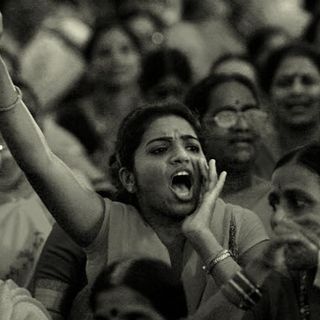It’s a big week for Indian legislation around gender and sexuality. It’s our unfortunate lot that we inherited the Indian Penal Code (IPC) from the British Raj, and so, rather than reflecting contemporary Indian values of justice, liberty, and equality, it instead reflects those of Victorian England. Of course the IPC has been amended several times since independence, but we are still governed by some of its most archaic sections. Currently, the Supreme Court is eyeing a revision of Section 377, which, among other things, criminalizes same-sex relations.
Now, as Hindustan Times reported, a Public Interest Litigation (PIL) has asked the Delhi High Court to reconsider Section 375 of the IPC, which defines rape in gender-specific terms. At the moment, Section 375 only acknowledges rape committed by a man, and does not protect male rape survivors. As the plea mentions, the Protection of Children from Sexual Offences Act protects boys under the age of 18, but there are no explicit provisions for adult males.
Sanjiv Kumar, the petitioner who filed the PIL, is likely acting in response to the potential revision of Section 377, which would decriminalize same-sex intercourse. Because there’s no current punishment for the rape of an adult male, advocates in such cases often turn to Section 377, which outlaws “carnal intercourse against the order of nature with any man, woman or animal.”
The idea that men cannot be victim to rape perpetuates toxic masculinity, and actually sets India back from achieving gender equality. It’s unclear whether equality is Kumar’s goal; nevertheless his petition makes an important point: Rape, and the punishment of rapists, must be defined in gender-neutral terms.
Simply put, if anyone, of any gender, does not consent to a sexual act, it is rape, and our laws need to reflect this. Additionally, if Section 377 is indeed amended to decriminalize intercourse for the LGBTQ community, our laws must expand to protect gay men and trans men, who experience alarming rates of sexual violence.
Before the Delhi High Court, the amicus curiae said that global views on the issue believe legislation around it should be gender-neutral. Indeed, US constitutional law defines rape as “any person” who commits a sexual act upon “another person” without their knowledge or consent, among other indicators. But one amicus curiae also noted that it may not be the right time for India to make the change, HT reported. “Will there ever be a right time?” the bench reportedly responded.
It is unclear what the HC judges meant by this curious question. They could hold the unfortunate belief that men cannot be raped. More positively, they could have been wondering why one moment in time is better than any other to ensure a nation’s legislation protects all of its citizens from crimes to which they are susceptible. But in short, to answer the High Court’s question: Yes, and that time is now.




